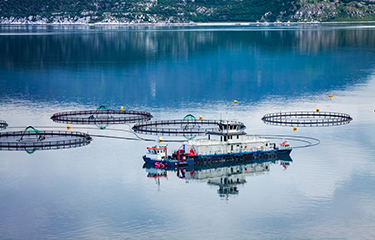New research released by genomics company AquaGen has found Norwegian aquaculture production could be significantly increased through more-selective breeding techniques.
A new paper, titled "The power of genetics" and published in the journal Aquaculture, quantified the benefits of achieving rapid growth in Atlantic salmon. The study used a “common garden experiment” eggs from females representing present-day farmed salmon were fertilized from cryo-preserved milt from males of multiple generations to identify the gains in growth rate over the last few decades.
Males from industry generation “zero,” harvested in the 1970s, was compared to generation “11,” harvested between 2017 and 2019. The study found that modern salmon grow at a significantly higher rate. AquaGen has been breeding salmon for over 40 years and has made genetic progress in terms of growth, health, disease resistance, survival, and quality in every generation, which has helped to optimise production and efficiency ...
Photo courtesy of Andrey Armyagov/Shutterstock








